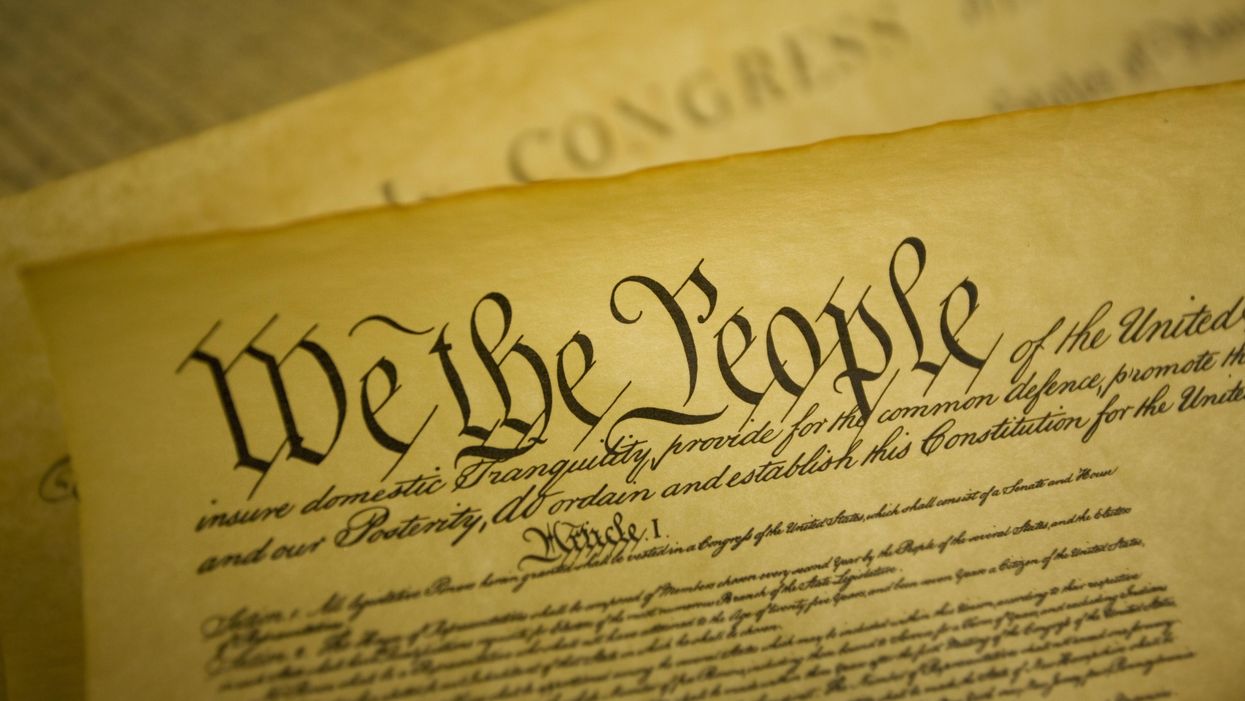LaRue writes commentary at Structure Matters. He is a former deputy director of the Eisenhower Institute, a nonpartisan think tank, and of the American Society of International Law.
As impossible as changing the Constitution may seem today, amendments are in our future. It may be years or decades away, but it will happen. And election reform could be the topic.
Historically, amendments have been added in clusters every half century. Ten of the 15 post-Bill-of-Rights amendments still in effect were adopted in relatively brief windows right after the Civil War (three in 1865-70), during the Progressive era (three more in 1913-20) and in the Civil Rights era (another four in 1961-71).
Had this cycle held, we would have expected several amendments in the 2010s. But we had none and none are on the horizon — with the exception of the still-unlikely Equal Rights Amendment. Why? Hyper-partisanship and polarization may top the list. Shortened political attention spans could be a factor. Maybe we simply have lacked a compelling enough need for a change to command the required two-thirds majorities in Congress and then ratification by 38 states.
Or perhaps the cycle broke because the dominant focus for constitutional change is shifting away from individual rights. Two-thirds of all the amendments so far have advanced individual liberty, from freedom of speech and religion in the 18th century to voting rights in the 20th century. Other than the faint hope that the ERA might be resurrected, no rights-based amendment has garnered widespread consideration in this century.
Could long-unattended, election-related issues be emerging instead as subjects for consideration? Our government may rest on principles and rights, which have deserved defense or expansion. But the Constitution is mostly about the structure of the government built on top of those rights, much of it electoral.
This structure has only been repaired twice, and only following a breakdown of the system. The 12th Amendment in 1804 enabled members of the Electoral College to cast separate votes for president and vice president, thus consigning to history the fiasco of the tied 1800 election — and between running mates, no less. Then the 22nd Amendment in 1951 limited presidents to two terms after Franklin Roosevelt twice violated the two-term tradition. (The 17th Amendment is a notable hybrid. In 1913 it shifted the selection of senators from state legislatures to the public, so it was about both rights and structure.)
Will another breakdown bring about constitutional change? Quite possibly. If a presidential election is ever put in the hands of the House, because no candidate secures a majority 270 electoral votes, popular pressure may finally force replacement of the Electoral College. Or perhaps another misfire or two, when the popular and electoral vote winners differ as in 2000 and 2016, will be enough. (And we should be ready with an alternative, one that assures the popular majority prevails, since systemic breakdowns have led to repair in a matter of years, not the usual decades).
Voting rights are also percolating in the not-quite-bad-enough-to-fix-constitutionally-yet space. The focus of much attention now in state legislatures, the challenges nonetheless make plain the need for an amendment to affirm the right to vote — not merely prevent or penalize its denial.
Such an amendment could advance the obligation to vote, which constitutes part of the structure beneath our elected leaders, giving them their mandate of legitimacy. Accordingly, it would be similar to the 17th Amendment — about structure as well as individual rights.
Other election-related topics, such as redistricting or campaign finance, may appear as candidates for an amendment, as former Supreme Court Justice John Paul Stevens advocated in 2014. But both may be addressed by the states — as is occurring for redistricting — or through federal statute, as proposed in the For the People Act, now pending in the Senate after passage by the House. But not all such statutory solutions prove to be adequate.
Looking ahead toward possible national constitutional change is a fraught exercise in the current political climate. Even reasonable election reform ideas can't avoid the "pipe dream" label. But in less than two decades, or four presidential elections from now, the circumstances may be very different. Republicans may be against the Electoral College if Texas has finally turned blue — or if they realize they'd rather get something for all the votes they earn in California, which at 6 million were more than those cast for former President Donald Trump in carrying Texas last fall.
Many state responses to improve voting administration or to limit partisan gerrymandering may be working well in the 2030s, prompting demand for constitutional amendments that standardize, simplify and spread those benefits across the country. Or they could have failed, creating demand for a national solution.
Timing could be the key. If we have moved away from bursts of amendments to improve our rights every 50 years, when might we next see another? Has the underlying social pressure for such constitutional change dissipated or does it continue to build? Are structure-of-government amendments on any cycle at all, or do they only occur following a breakdown? Given how this topic lacks emotional or personal pull, are there dual-purpose changes that might be modeled after the 17th Amendment?
When the winner of the presidency in 2036 is inaugurated, it will be the 250th anniversary year of the signing of the Constitution. What if we were to commit to repairing the Constitution that year in order to celebrate it?
Sixteen years may seem a long way off. But it will pass quickly. The 250th anniversary of the launch of the world's first and still-lasting constitutional democracy may present the emotional tug we need to elevate election reform to the front of the constitutional line. Let's not waste it.




















